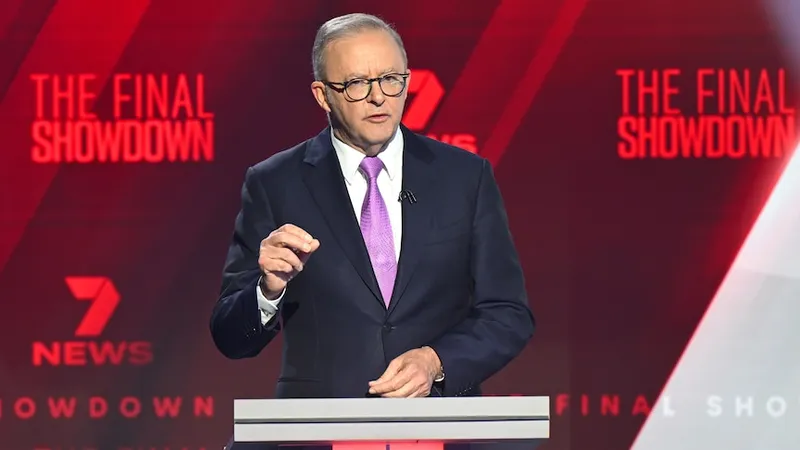Canberra’s debate hall crackled with tension last night, April 26, as Australia’s top political leaders went toe-to-toe in their final showdown before the federal election. The ABC’s live broadcast, moderated by a steely Michael Usher, saw Prime Minister Anthony Albanese and Opposition Leader Peter Dutton trade barbs over trade ties with China, Indigenous Welcome to Country ceremonies, and—surprisingly—the runaway cost of eggs. It was a night of red faces, pointed fingers, and a few stumbles that left voters with plenty to chew on.
The China question hit first, and it hit hard. Albanese defended his government’s cautious approach to Beijing, pointing to a trade deal inked on April 10 that lifted tariffs on Australian wine. He leaned forward, jabbing the air, saying the deal saved 2,000 jobs in the wine industry. Dutton wasn’t buying it. He accused the PM of “cozying up” to China, citing a foreign affairs report from March 2025 that flagged risks of over-reliance on Chinese markets. Dutton’s voice boomed as he demanded a tougher stance, though he sidestepped specifics when pressed on how he’d balance trade and security. The crowd murmured, sensing the dodge.
Then came the Welcome to Country debate, a topic that’s been simmering since a parliamentary review in February 2025 called for standardizing Indigenous ceremonies at public events. Albanese, visibly uncomfortable, backed the review’s push for “consistency” but stressed respect for traditional owners. Dutton pounced, calling the ceremonies “divisive” and citing a government survey from January showing 38% of Australians felt they were overused. He proposed limiting them to major events, a stance that drew gasps from some in the audience. Albanese shot back, accusing Dutton of “dog-whistling” to conservative voters. The exchange felt raw, like a wound ripped open, and Usher had to step in to cool things down.
But the real curveball was eggs. Yes, eggs. With grocery prices a sore spot for voters, the debate zeroed in on why a dozen eggs now costs $7.50 in some supermarkets. A report from the Australian Bureau of Statistics, released April 16, pinned the spike on avian flu outbreaks and rising feed costs. Albanese touted his government’s $300 million relief package for farmers, announced last month, but stumbled when Dutton pressed him on why egg prices hadn’t budged. Dutton, smirking, rattled off the cash rate—4.35%—and mocked Albanese for blanking on it during a radio interview last week. The PM’s face reddened, but he fired back, saying Dutton’s “cheap shots” wouldn’t lower grocery bills. The audience laughed, groaned, and clapped all at once.
By the end, both leaders looked battered but unbowed. Albanese leaned on his record, pointing to 150,000 new jobs created in 2024, per government data. Dutton hammered on cost-of-living pressures, citing a Reserve Bank report forecasting inflation at 3.2% through 2026. Neither landed a knockout blow, but the debate laid bare the fault lines—China’s influence, cultural identity, and the price of a carton of eggs—that will shape the election.
Polls open May 3. Early voting starts tomorrow, April 28, at 8 a.m. across the country.

